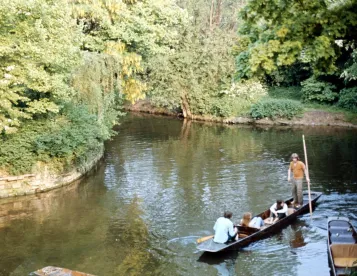The United States Court of Appeals for the Eleventh Circuit just clarified its test for when waters (in this case a river and creek) are considered "navigable" for purposes of admiralty jurisdiction. In Aqua Log, Inc. v. Lost and Abandoned Pre-Cut Logs and Rafts of Logs, the plaintiff, Aqua Log, sought to establish ownership over some logs that had sat for many years at the bottoms of the Flint River and Spring Creek in Georgia. Left over from bygone logging operations, the logs were now ideal for furniture and musical instruments. Aqua Log claimed title to the logs under two doctrines: salvage and finds. Under maritime doctrine of salvage, a "salvor" is entitled to an award for rescuing vessels or cargo from a marine peril. The law of finds allows the finder to obtain title to abandoned property, and is often brought to bear in sunken treasure cases. Aqua Log brought claims for salvage and finds under the federal court's admiralty jurisdiction.
The State of Georgia, however, appeared in the case to contest Aqua Log's claims. Georgia moved to dismiss, arguing that the court did not have jurisdiction. A federal court's admiralty jurisdiction only applies to "navigable waters." Georgia argued that the waterways in question were not navigable because they had not been used for commercial transportation in many years, and there was no evidence they would be in the future. The district court agreed and dismissed the case. Aqua Log appealed.
On appeal, the Eleventh Circuit reversed. In so doing, the Court clarified the test for admiralty jurisdiction. The test is not whether a waterway is actually being used for commercial transportation, nor is it whether there is any indication of possible future use. Instead, the question is whether the waterway is "capable" of being used in commerce. No one argued that the river and creek in question were not at least capable of being used in commerce, even though no such activity had occurred for a long time (presumably Aqua Log did not propose to transport the logs, once recovered from the bottom, by water).
The case is important because other, more common cases may or may not fall within admiralty jurisdiction. A boating accident, for example, is governed by maritime law if it occurs on navigable waters and involves "traditional maritime activity." Aqua Log makes it clear that, in the Eleventh Circuit (as in most others), a waterway need only be capable of commercial transportation in order to be navigable. That's usually a much simpler inquiry than whether a waterway is in fact so used. In many cases, the inquiry reduces to whether the waterway is completely confined to one state, in which case it cannot be used for interstate commerce.
The Eleventh Circuit spans Georgia, Florida and Alabama. It should come as some relief to practioners that the many tidal rivers and creeks in those states will not venture in and out of admiralty jurisdiction based on the level of ongoing commercial activity or predictions for future activity. Such a rule could make for an exhausting jurisdictional inquiry in any number of cases.



 />i
/>i
